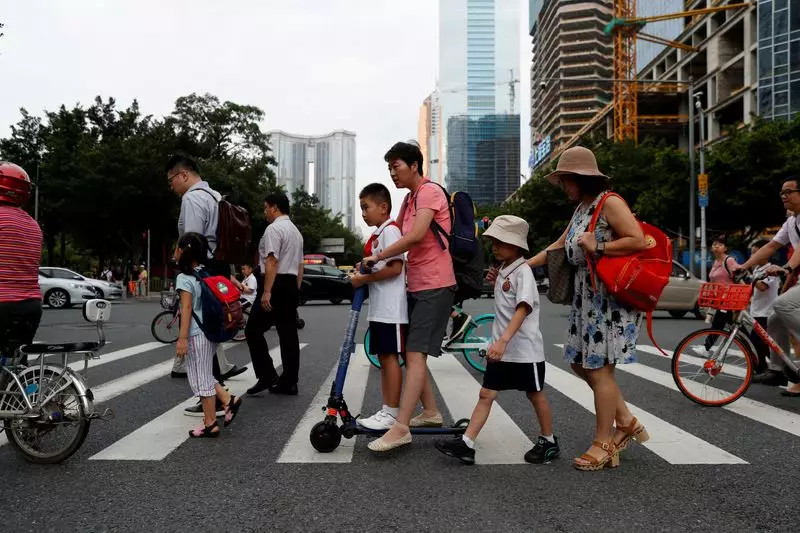In recent months, China’s private tutoring sector has begun to show signs of recovery from a crushing crackdown imposed by the government three years ago. This resurgence appears to be driven by a tacit shift in policy that aims to support economic growth and job creation, albeit without any formal announcement from the authorities. The 2021 “double reduction” policy, which had previously forbidden for-profit tutoring in key school subjects to alleviate financial and educational pressures on families, is being interpreted more flexibly as state officials recognize the need for stability and growth in the economy. As industry stakeholders adapt, parents are also revisiting their choices, rekindling the demand for tutoring services.
The initial motivation for the government’s severe restrictions on the tutoring industry stemmed from a desire to reduce parent stress and address rising educational costs. However, the fallout from these regulations was substantial, wiping out billions in market capitalization and resulting in massive layoffs within the sector. Before the clampdown, the for-profit tutoring industry was valued at approximately $100 billion, and its three major players employed over 170,000 individuals. Now, with millions of university graduates struggling to secure employment, the Chinese government is looking at the tutoring sector as a potential avenue for economic stimulation and job creation.
Industry insiders suggest that the change is being felt on the ground. Reports from tutoring schools indicate that operations are increasingly being conducted openly compared to the covert methods employed in the aftermath of the “double reduction” policy. Many tutoring centres appear to have resumed their normal operations, inviting students back into the fold. This acknowledgment from administrators indicates that the regulatory environment is shifting from one of strict enforcement to a more supportive framework, allowing the sector to adapt while adhering to established restrictions.
Parents have begun to experience this evolution firsthand. Michelle Lee, a southern China resident and mother of two, reports spending significant amounts on tutoring services to remain competitive in the education arena. In recent months, Lee has observed that tutoring institutions are displaying greater confidence, no longer implementing shrouds of secrecy around their classes. This change highlights a key aspect of the evolving landscape: a growing acceptance and recognition from families in terms of the necessity of tutoring for academic success.
Amidst this backdrop, some government officials have acknowledged ongoing pain points in educational policy. During recent events, statements were made indicating that the government’s stance may be easing, particularly concerning tutoring aimed at non-core subjects in order to stimulate economic activity. Parental sentiments reflect a sense of pressure and disillusionment; they feel compelled to seek additional academic support for their children, which many perceive as a failure to meet educational demands themselves. This contradiction between fear of inadequate support and desire for higher achievement underscores the intense pressures faced by families in China’s competitive schooling system.
Executives at tutoring firms have expressed optimism regarding a recent regulatory relaxation. Critical to this shift was the inclusion of education services in a broader 20-point plan aimed at stimulating consumption. This announcement has had immediate implications for stock prices and has served as a beacon of hope for education companies, many of which are eager to expand their operations now that the regulatory regime is perceived to have softened.
Additionally, notable fluctuations in the number of extracurricular tutoring licenses have been reported, as the market begins to rebound. Companies like TAL Education and New Oriental have once again begun hiring en masse, signaling both a return to operational viability and an acknowledgement from the state that the industry is essential to the economic fabric of the nation.
Certainly, the path ahead for the tutoring sector remains fraught with challenges. While optimism permeates discussions, the reality is that any revival will be monitored closely by the government to ensure compliance with existing regulations. Offsetting this reality is the fact that many tutoring organizations have innovatively redefined their offerings to circumvent outright restrictions on core academic subjects. This creativity indicates a resilience and adaptability within the industry that could yield a sustainable future.
As parents face increasingly complex choices regarding their children’s education, the equilibrium between necessary external support and government restrictions will be crucial in shaping the sector’s future trajectory. The delicate balance between regulatory oversight and market freedom will determine whether China can foster a thriving tutoring ecosystem that meets the needs of its students and families while also complying with government standards.
In summation, as the tutoring sector finds its footing once again, it faces the dual challenge of rebuilding confidence amidst regulatory scrutiny while addressing the profound educational demands of Chinese families. The evolution of this industry holds significant implications for the broader economic landscape, and how it navigates the current climate will ultimately define its sustainability in the long term.

